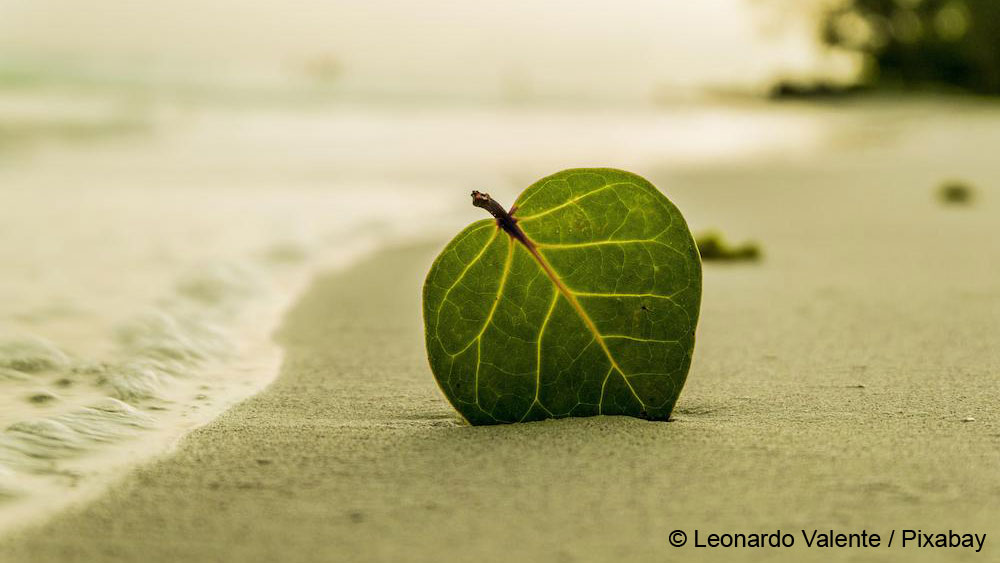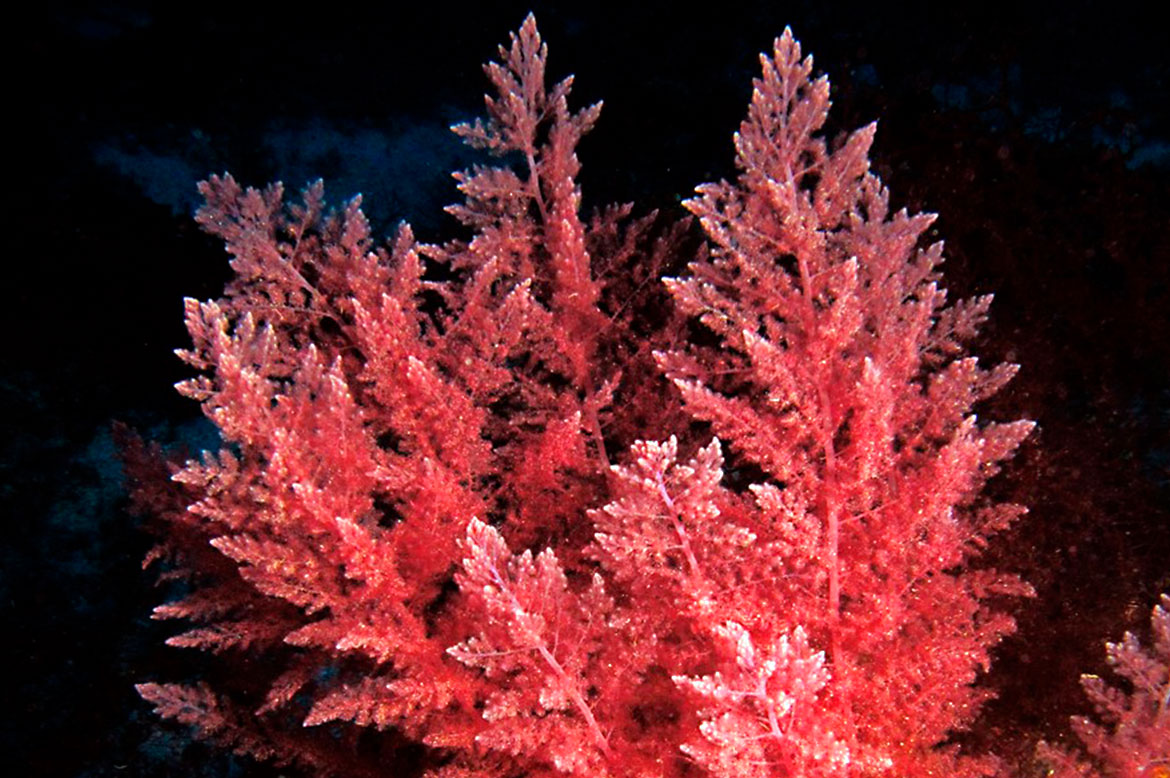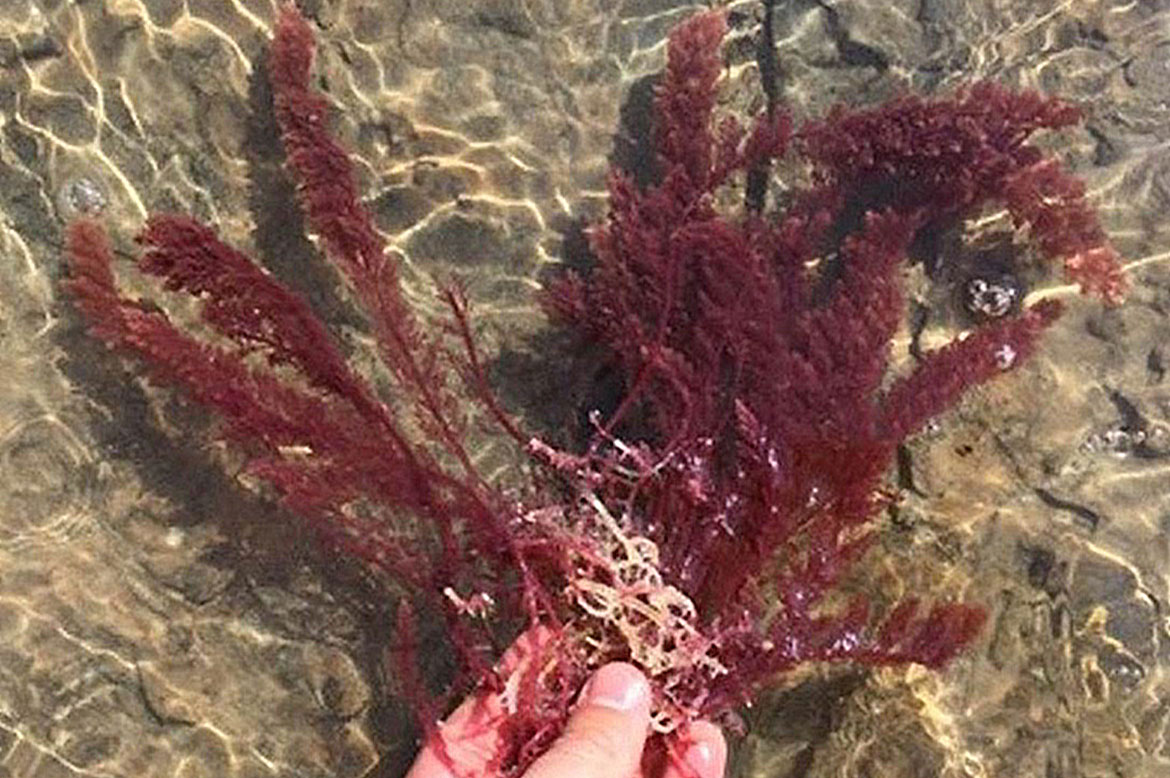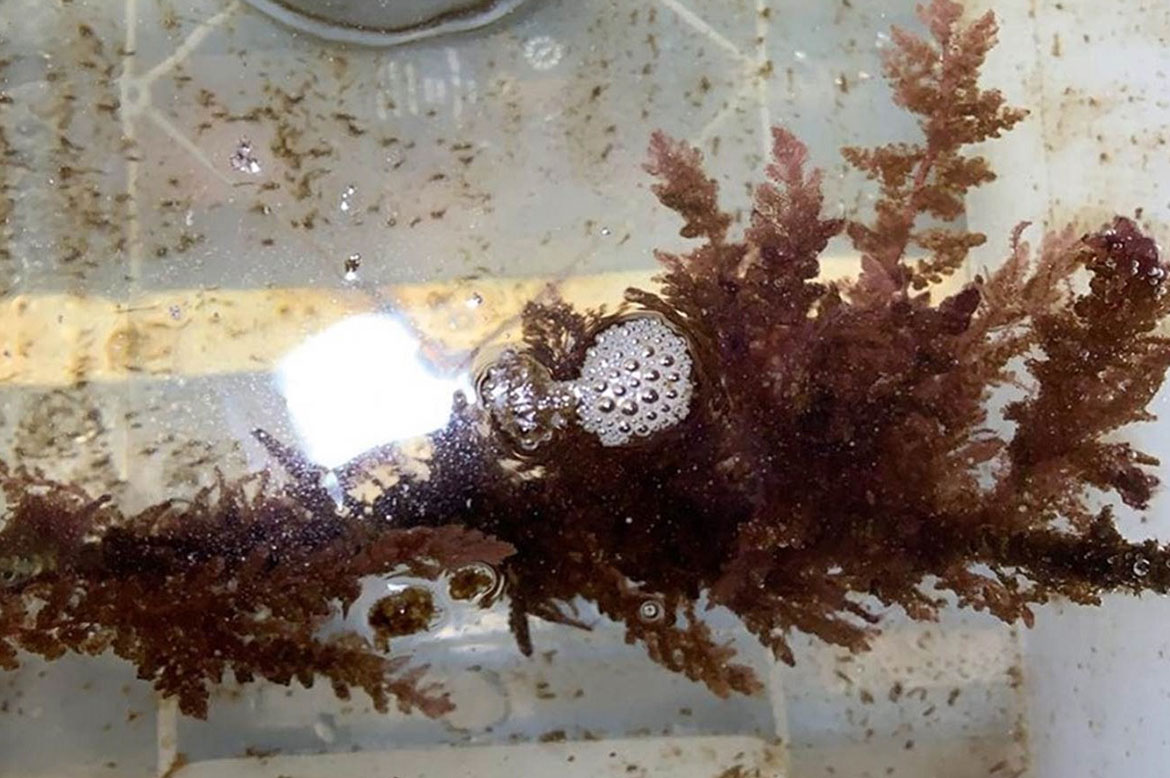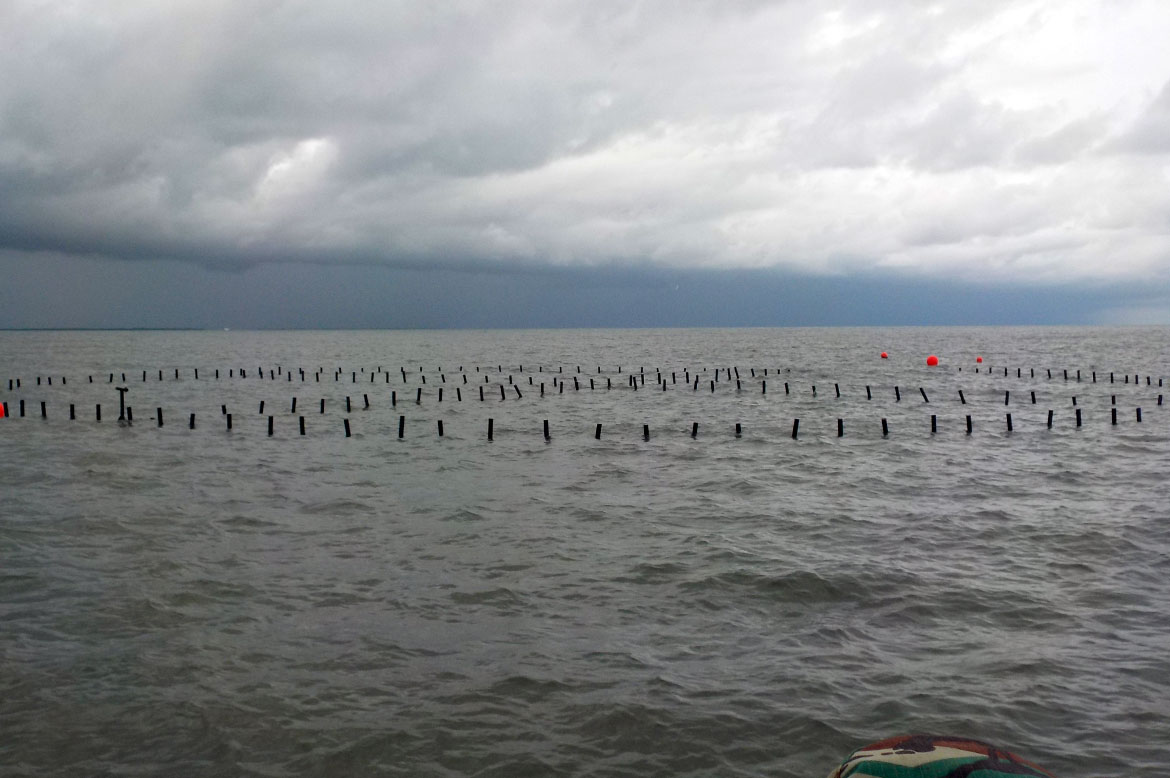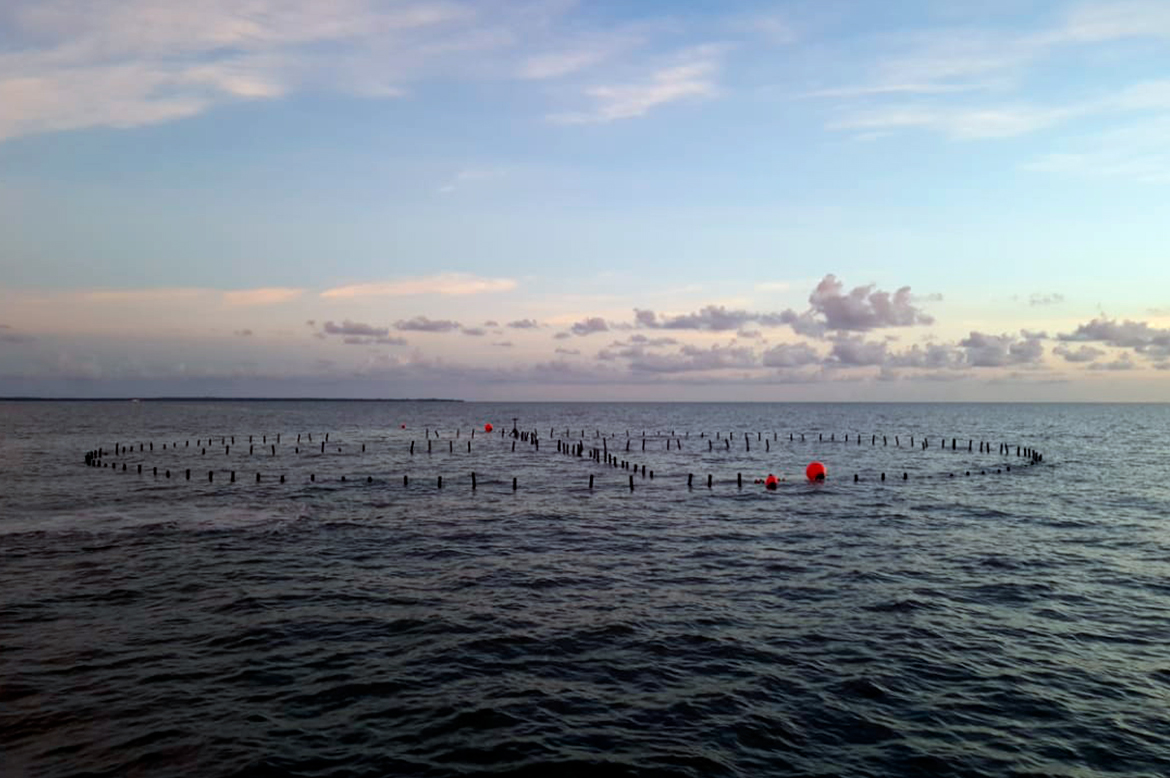Seaweed on platforms in Indonesia
seaweed: Asparagopsis taxiformis
An enterprising company known as SeatechEnergy has invented submersible platforms for seaweed farming that can increase harvest yields up to 50-fold. This innovation has the potential to kick start a competitive local seaweed industry, potentially providing jobs in regions where infrastructure may be weak.
In parallel, the platforms themselves are physical barriers to harmful marine activities, creating protected areas where aquatic life can thrive.
As a side project, SeatechEnergy will cultivate the still-wild seaweed species Asparagopsis taxiformis (AT) that has the potential to almost eliminate the cattle industry`s carbon footprint1. The project, executed in Vietnam, is a partnership with Greener Grazing who is the leading company developing the science and methodologies needed to initiate scalable, ocean-based farming of AT.
![]()
- + 350ha of marine protected areas
- + Improved habitat for marine species
- + Decrease in local ocean acidification
- + Commercialization of new seaweed products critical for climate change mitigation
- + 500 new jobs
Big-picture goal: The roll out of the model throughout Indonesia and beyond.
The platform technology
Dutch headquartered impact start-up SeatechEnergy BV is revolutionizing aquaculture practises. Its patented seaweed platforms can be used at varying depth which gives the farmer means to adjust to different external conditions.
Contrary to traditional methods on the surface, these macro algae also grow faster when submersed in the water column, which better reflects how seaweed grows in the wild. IUCN’s Blue Natural Capital Financing Facility (BNCFF) supports SeatechEnergy’s launch of its seaweed production in Sulawesi (Indonesia) and carrying out important studies to make sure the environment is not harmed; also to better understand effects on the local marine ecosystem.
In addition, BNCFF finances cultivation of the wild seaweed species Asparagopsis which has been found to almost eliminate methane release of ruminants if added in relatively small amounts to feedstock.
Bridging the gap between profit and conservation
SeatechEnergy provides an opportunity for underdeveloped regions to increase the competitiveness of their seaweed industry or to kick-start a viable local economy.
Because of the tangible benefits to climate and ecosystems, such social development goes hand in hand with environmental protection and forms an attractive Nature-based Solution (NbS).
Embedded in sound marine protection concepts, this form of aquaculture can also be used to enforce Marine Protected Areas that are currently unmanaged due to lack of alternative income opportunities.
References
www.sciencedirect.com/science/article/pii/S0959652620308830


